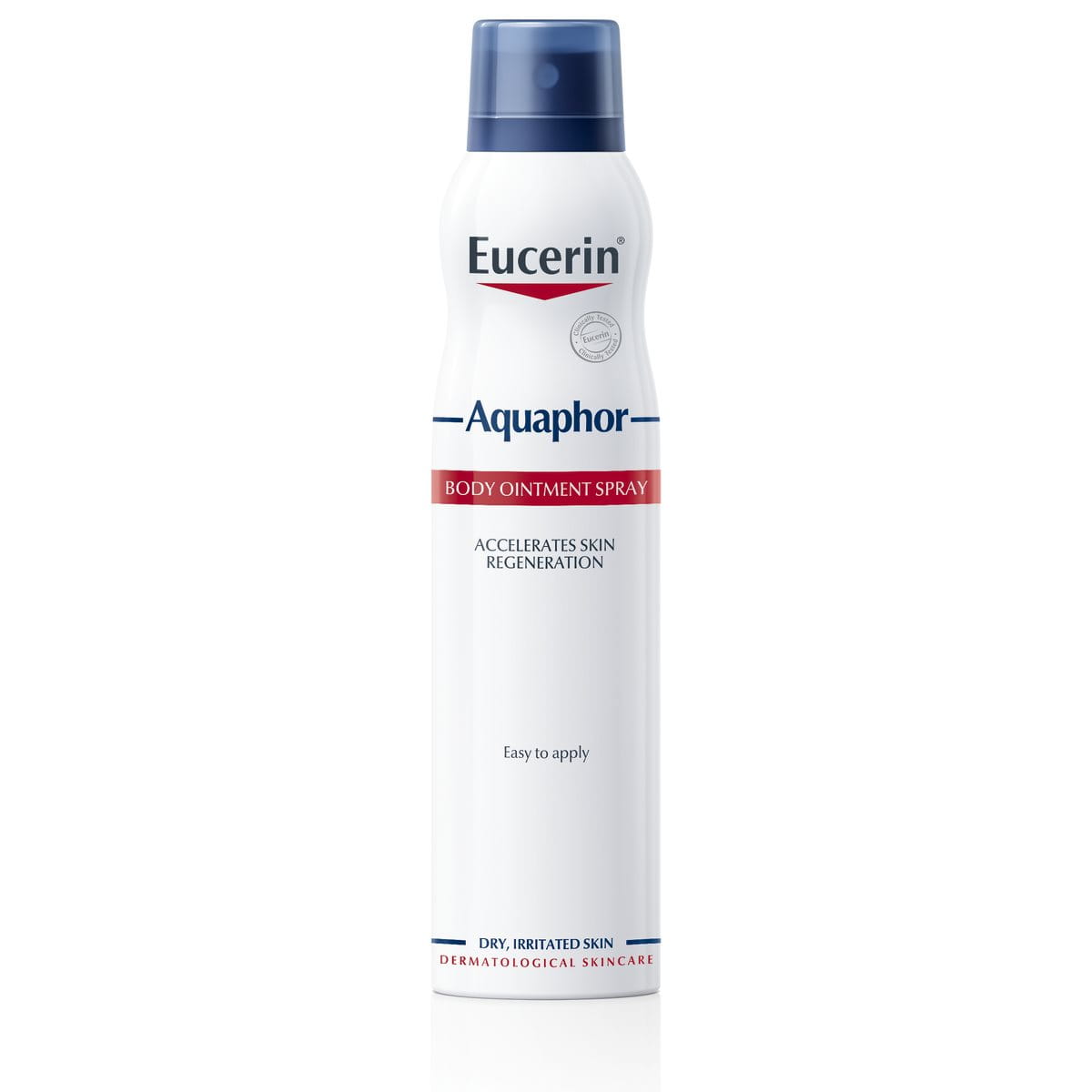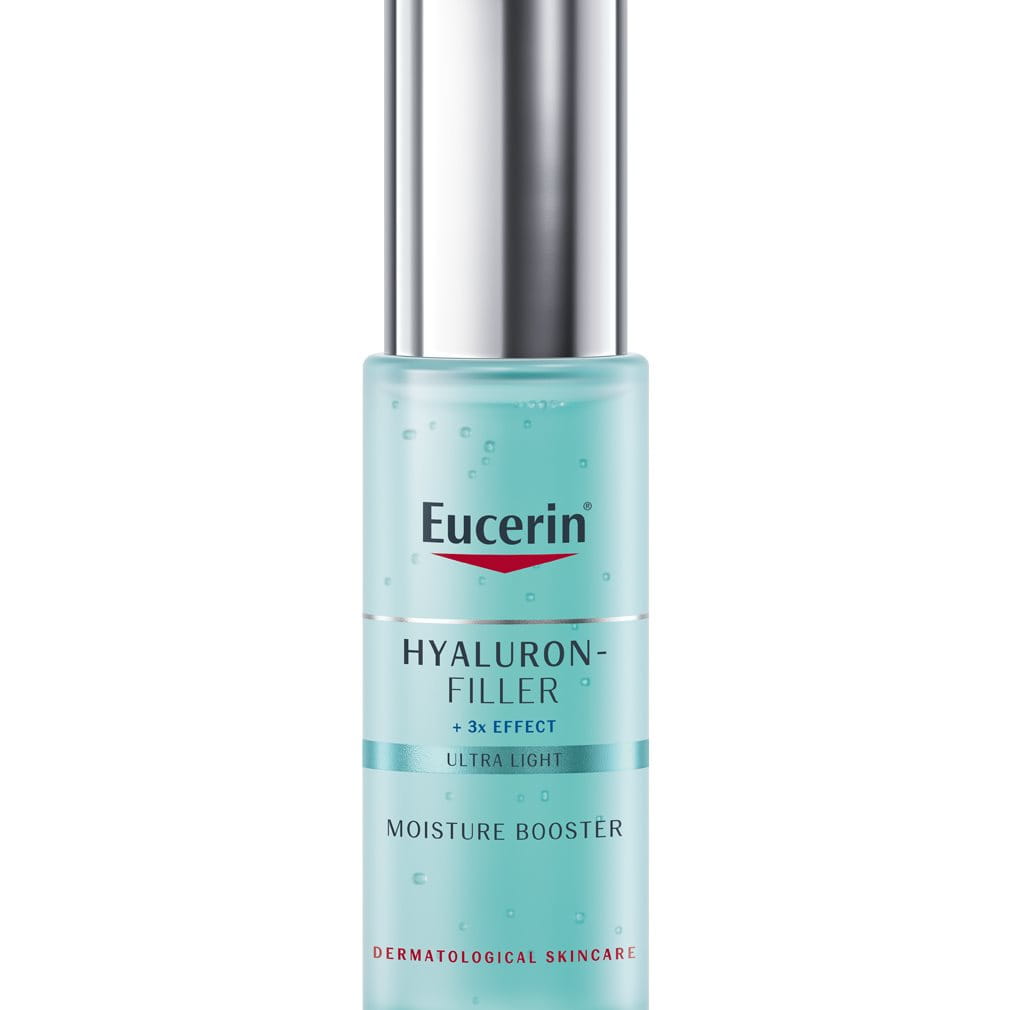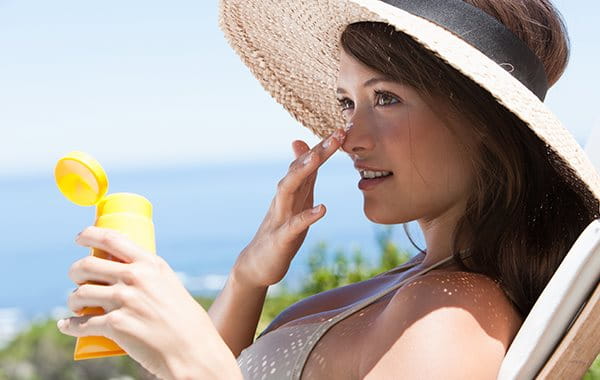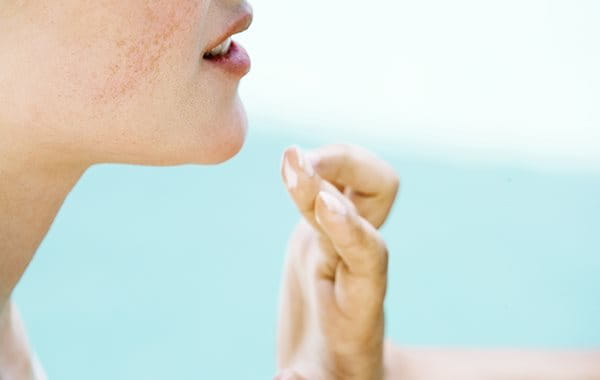Skin and sun
A little bit of sun is good for your spirits, and your skin. But where some people used to recommend sunlamps as a treatment for acne, scientists now know that too much sun is not a good thing for any skin type or condition − and that includes acne-prone skin.
This article looks at how excessive and/or unprotected exposure to the sun’s rays can exacerbate the causes and triggers of acne and make matters worse rather than better. And it explains how you can enjoy the sun and care for your blemish-prone skin at the same time, even if you are undergoing medical acne treatment.
الآثار الإيجابية لنور الشمس
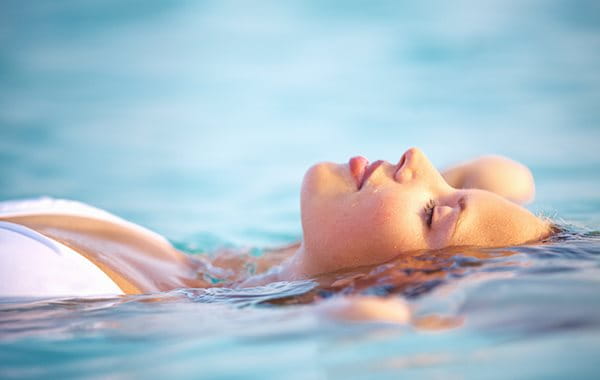
Sunlight in moderation is good for our bodies and our minds. It’s an important source of Vitamin D which is essential for many of the vital processes in our body such as the development of healthy bones. You can find out more in How UVA, UVB and HEV Light rays affect skin.
The sun’s rays can lift our mood too. Our body’s ability to produce serotonin (often called the `happy hormone`) is directly affected by sunlight and research has shown that a lack of sunlight can lead to Seasonal Affective Disorder (or S.A.D.) where people get depressed.
Warm temperatures also stimulate circulation and perspiration, and increased perspiration, when well managed, can help to bring excess oil to the skin’s surface and clear pores. Find out how in Acne and sport.
Some people with acne and/or blemish-prone skin report that their skin condition improves when they enjoy a little bit of sun. Living with acne can be stressful, so if a little bit of sun makes you happy about yourself and your skin then that’s a good thing. You can read more about the psychological impact of living with acne.
الآثار السلبية للشمس
We’re all individuals, and our skin is as different as we are, so what works for one, doesn’t necessarily work for the next. For every acne patient who says their skin improves in the sun you’ll meet another who says their skin condition in worse during the warmer months. There are a number of possible reasons for this:

- The sun causes skin to dry out and even oily skin (excess oil production typifies acne-prone skin) needs moisture. When over exposure to the sun dries skin out, the sebaceous glands (which produce the sebum that gives skin the oils it needs) go into overdrive and this excess sebum production − known as seborrhea − is one of the key stages in the formation of blemishes.
- Another result of skin drying out is that it cornifys or keritanises. This means that skin cells on the surface harden. This interferes with the natural process by which dead skin cells are shed and prevents sebum from being able to drain from the pores. Comedones develop as a result.
- Sweat production increases in warm weather, as does the rate at which it degrades on skin’s surface. This creates an environment in which P.acnes - the bacteria associated with acne - can thrive and spread.
You can find out more about how each of these processes contribute to the formation and spread of blemishes in the development of acne.
- Sunlight can also trigger a particular variety of acne known as Acne Aestivalis (or, more commonly, as Mallorcan Acne). This happens when UVA rays combine with the chemicals in certain skincare and sun protection products and trigger an allergic reaction. Acne Aestivalis mostly effects women between 25 and 40, many of whom had a history of acne in puberty and you can read more about it in the different types of acne.
- Excessive sun exposure and/or inappropriate sun protection can also cause pigmentation issues and people with acne blemishes or acne scars are particularly prone to hyperpigmentation. You can find out more in Acne and hyperpigmentation.
- And, as we all know, the sun presents other risks for all skin types - not just for those with acne-prone skin. These include sunburn (and, ultimately, cancer), sun allergies (such as Polymorphic Light Eruption or PLE for short) and premature ageing1. You can read more about these in How UVA, UVB and HEV Light rays affect skin.

